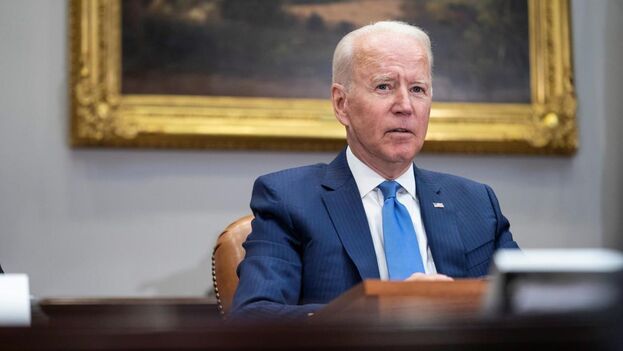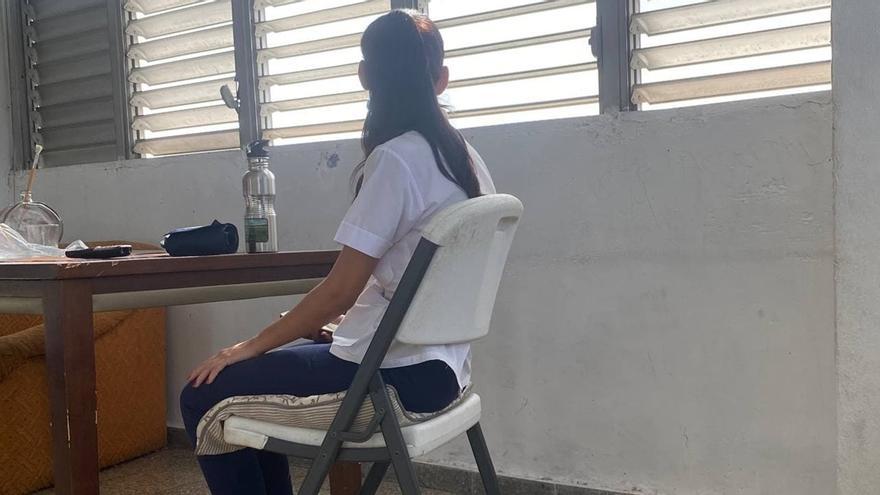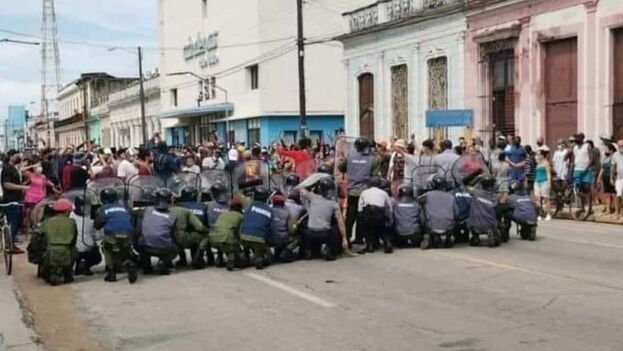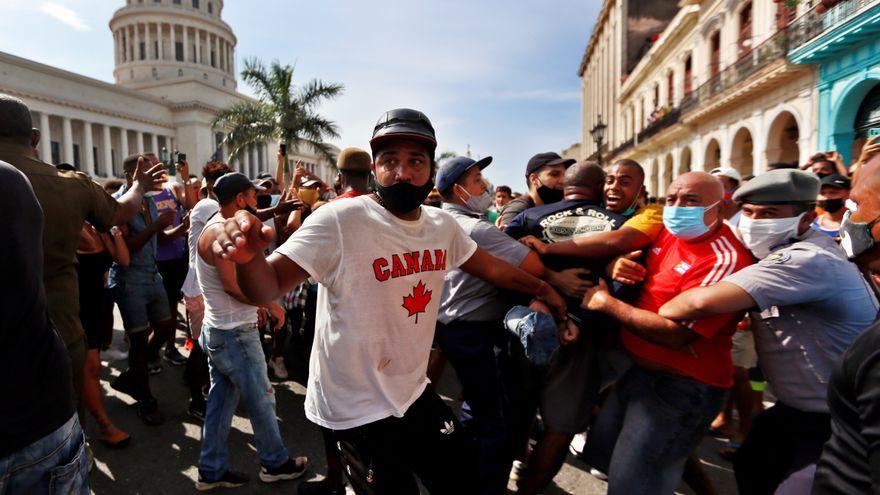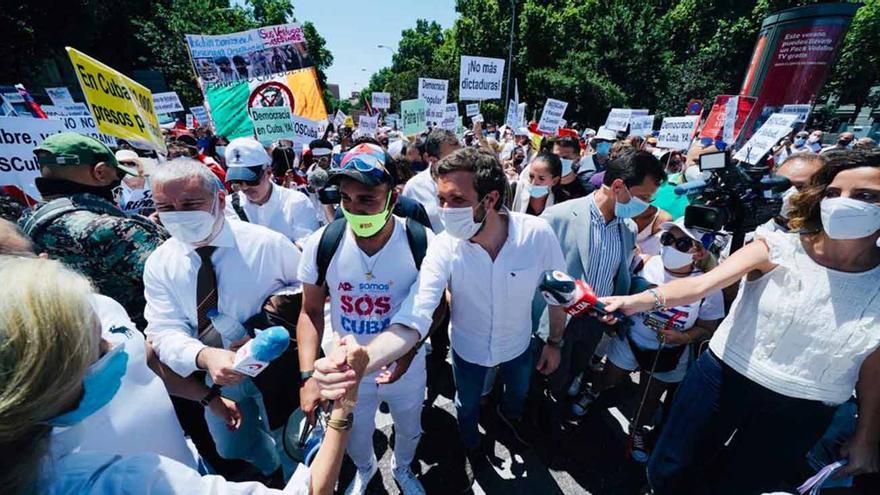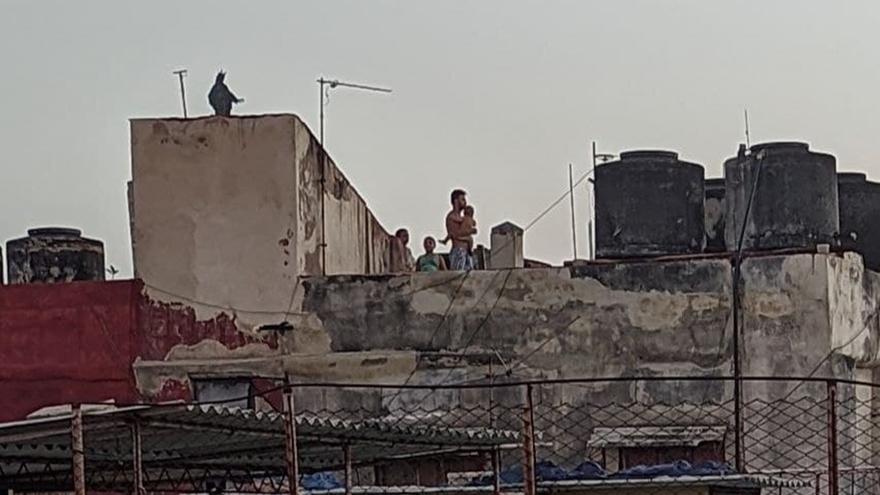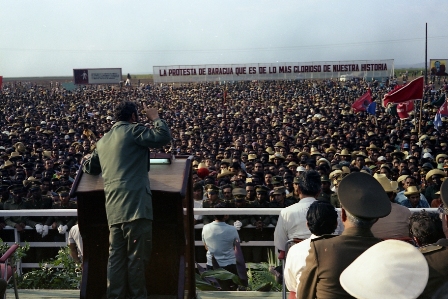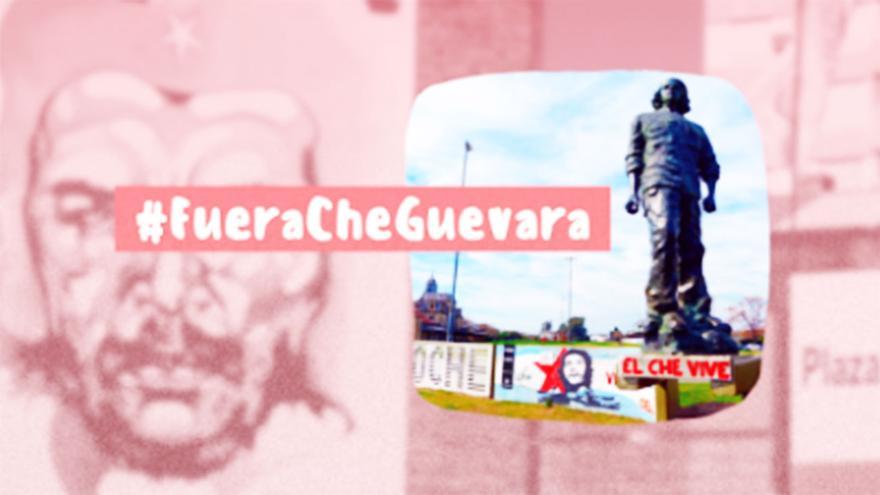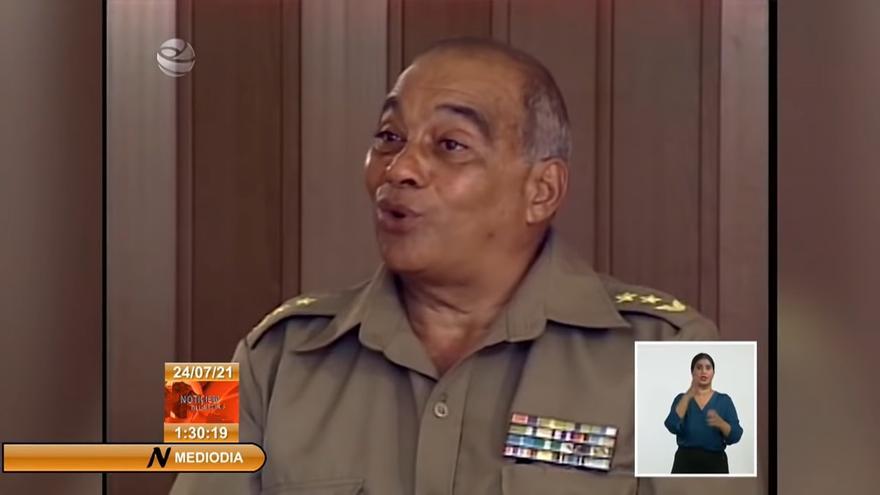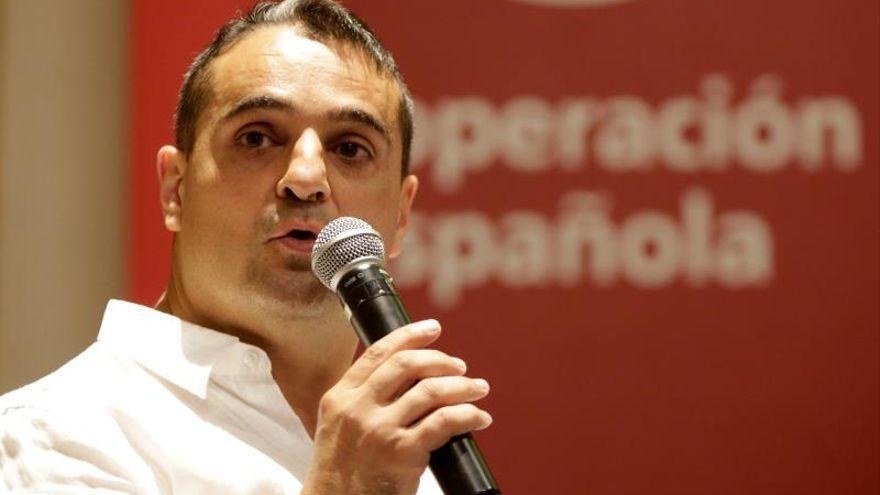
![]() 14ymedio, Madrid, July 26, 2021 — Ángel Martín Peccis, the Spanish ambassador to Cuba, attributed the protests in Cuba to the discontent that exists because of problems in finding medicine and food, a scarcity he chalks up to the pandemic and the “blockade” of the United States that “has lasted 62 years.” The diplomat didn’t want to strictly assess the demonstrations, following the words of the Ministry of Foreign Affairs, according to what the Spanish newspaper Heraldo published this Monday.
14ymedio, Madrid, July 26, 2021 — Ángel Martín Peccis, the Spanish ambassador to Cuba, attributed the protests in Cuba to the discontent that exists because of problems in finding medicine and food, a scarcity he chalks up to the pandemic and the “blockade” of the United States that “has lasted 62 years.” The diplomat didn’t want to strictly assess the demonstrations, following the words of the Ministry of Foreign Affairs, according to what the Spanish newspaper Heraldo published this Monday.
Peccis, who arrived in Havana in November 2020 to replace Juan Fernández Trigo, explained that the island’s authorities have prioritized health over the economy, with very early closures when there were hardly cases of coronavirus, which has dealt a blow to the situation for the country and its families.
“Everything has been closed: restaurants, stores, tourism. After nine months of this, added to the blockade from the United States and the new measures taken by Trump, everything comes to a very difficult situation, which we believe will pass when the economy begins to reactivate,” said the ambassador, who believes that all of Latin America is experiencing a very difficult situation because of the pandemic. continue reading
In his statements, which he made during a recent visit to Zaragoza (capital of the Spanish region of Aragon, which he comes from), Peccis asked for prudence from his country’s politicians with the goal of maintaining good relations with the authorities on the island, where Spain has large commercial interests. He believes that the important thing is that the protests be peaceful, “the government can meet with its people and there will be no difficulties.”
In his judgment, “things have already calmed down a lot” and everything “will pass and continue to improve as the economy opens and people are vaccinated.” However, the opening of the economy and vaccination have coincided precisely with the opposite, an increase in infections and discontent in a society that grows more and more tired.
Yes, Peccis wanted to comment on the economic and business perspectives on the island, where, he recalled, Spanish hotels like Iberostar, Globalia, NH, and Meliá continue to invest. “There are going to be new projects that are estimated to begin as soon as Covid is controlled, at the end of the year or beginning of 2022,” he said. In his opinion, the Cuban government is convinced of economic openness and what was before a combination of state businesses with foreign ones will now join a private sector that will generate development.
“I think that it is going to be beneficial for the Cuban population, like is happening in Spain, to be able to have small and medium businesses and be autonomous, which will generate a lot of employment,” he said.
The ambassador insisted that good relations with the Cuban government are strategic and that they have been maintained throughout the years independent of what party was at the head of the Spanish government, as well as the position against the embargo, which is identical and in line with the European Union. Cuba, he maintained, must reform “without interference from anyone to be able to enjoy rights and freedoms.”
The diplomat participated in the forum organized by the Spanish Confederation of Business Organizations (CEOE) in Aragon, where the importance of the tourism sector for Cuba and Spain was discussed. Peccis defended the necessity of supplying food to the hotel sector on the island and how this is another business niche for his country. “Just now an Aragonese businessman can put an egg factory in Cuba and sell directly to the hotel sector,” he stated.
Although repercussions of the approval of the Helms-Burton law have in a certain manner frightened Spanish entrepreneurs, the ambassador maintained that there is a “real and legally secure opportunity” to invest in Cuba.
Other business owners participated in the event, including the directors of the company Pastas Romero, which has been exporting to Cuba for 24 years, who explained the manner in which they trade with the Island. Ignacio Santisteve, director of the international department, explained that it’s necessary to be very patient because there are no payment guarantees and consumption is irregular: “You can be waiting for months for government contracts, currency availability, and very regulated administrative procedures to be tendered,” he emphasized.
Nevertheless, their business has doubled since they began operations in the country and for that reason the background of the July 11 protests doesn’t matter to him much, he only hopes that they won’t be an obstacle. “With ongoing orders, we don’t expect to have problems. It’s true that there is a situation of uncertainty. However, we will try to continue taking advantage of the opportunities that this marvelous country continues to offer us,” he added.
Eduardo Monge, commercial director of Pagola Poliuretanos, which sells foam for chairs and mattresses to Cuba and which now seeks to enter the hospitality and construction sectors, also expressed his opinion on the repercussions of the wave of demonstrations this month on the island and believes that changes will come sooner or later. “The protests are an explosion of frustration over the dramatic situation that they have experienced. They have the political system that they have. But that will change. It’s almost inevitable.”
Translated by: Sheilagh Herrera
____________
COLLABORATE WITH OUR WORK: The 14ymedio team is committed to practicing serious journalism that reflects Cuba’s reality in all its depth. Thank you for joining us on this long journey. We invite you to continue supporting us by becoming a member of 14ymedio now. Together we can continue transforming journalism in Cuba.


